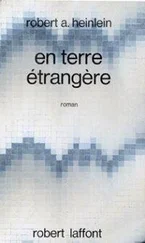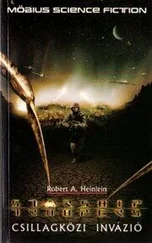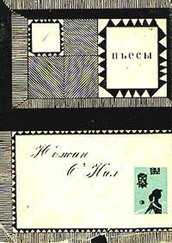Robert Heinlein - Beyond This Horizon
Здесь есть возможность читать онлайн «Robert Heinlein - Beyond This Horizon» весь текст электронной книги совершенно бесплатно (целиком полную версию без сокращений). В некоторых случаях можно слушать аудио, скачать через торрент в формате fb2 и присутствует краткое содержание. Жанр: Фантастика и фэнтези, на английском языке. Описание произведения, (предисловие) а так же отзывы посетителей доступны на портале библиотеки ЛибКат.
- Название:Beyond This Horizon
- Автор:
- Жанр:
- Год:неизвестен
- ISBN:нет данных
- Рейтинг книги:4 / 5. Голосов: 1
-
Избранное:Добавить в избранное
- Отзывы:
-
Ваша оценка:
- 80
- 1
- 2
- 3
- 4
- 5
Beyond This Horizon: краткое содержание, описание и аннотация
Предлагаем к чтению аннотацию, описание, краткое содержание или предисловие (зависит от того, что написал сам автор книги «Beyond This Horizon»). Если вы не нашли необходимую информацию о книге — напишите в комментариях, мы постараемся отыскать её.
Beyond This Horizon — читать онлайн бесплатно полную книгу (весь текст) целиком
Ниже представлен текст книги, разбитый по страницам. Система сохранения места последней прочитанной страницы, позволяет с удобством читать онлайн бесплатно книгу «Beyond This Horizon», без необходимости каждый раз заново искать на чём Вы остановились. Поставьте закладку, и сможете в любой момент перейти на страницу, на которой закончили чтение.
Интервал:
Закладка:
Theobald himself would know nothing, or very little, of his ancestral background until he was a grown man. He might not inquire into it, or have it brought to his attention, until he reached something around the age Felix had been when Mordan called Felix's attention to his own racial significance.
It was better so. The pattern of a man's inherited characteristics was racially important and inescapable anyhow, but too much knowledge of it, too much thinking about it, could be suffocating to the individual. Look at Cliff-damned near went off the beam entirely just from thinking about his great-grandparents. Well, Marion had fixed that.
No, it was not good to talk too much about such things. He himself had talked too much a short time before, and had been sorry ever since. He had been telling Mordan his own point of view about Phyllis having any more children-after the baby girl to come, of course. Phyllis and he had not yet come to agreement about it; Mordan had backed up Phyllis. "I would like for you two to have at least four children, preferably six. More would be better but we probably would not have time enough to select properly for that many."
Hamilton almost exploded. "It seems to me that you make plans awfully easy-for other people. I haven't noticed you doing your bit. You are pretty much of a star line yourself- how come? Is this a one-way proposition?"
Mordan had kept his serenity. "I have not refrained. My plasm is on deposit, and available if wanted. Every moderator in the country saw my chart, in the usual course of routine."
"The fact remains that you haven't done much personally about children."
"No. No, that is true. Martha and I have so many, many children in our district, and so many yet to come, that we hardly have time to concentrate on one."
From the peculiar phraseology Hamilton gained a sudden bit of insight. "Say, you and Martha are married-aren't you?"
"Yes. For twenty-three years."
"Well, then ... but, why-"
"We can't," Mordan said flatly, with just a shade less than his usual calm. "She's a mutation ... sterile."
Hamilton's ears still burned to think that his big mouth had maneuvered his friend into making such a naked disclosure. He had never guessed the relationship; Martha never called Claude anything but "chief"; they used no words of endearment, nor let it creep otherwise into their manner. Still, it explained a lot of things-the rapport-like co-operation between the technician and the synthesist, the fact that Mordan had shifted to genetics after starting a brilliant career in social administration, his intense and fatherly interest in his charges.
He realized with a slight shock that Claude and Martha were as much parents of Theobald as were Phyllis and himself-foster parents, godparents. Mediator parents might be the right term. They were mediator parents to hundreds of thousands, he didn't know how many.
But this wasn't getting his work done-and he would have to go home early today, because of Theobald. He turned to his desk. A memorandum caught his eye-from himself to himself. Hmmm ... he would have to get after that. Better talk to Carruthers. He swung around toward the phone.
"Chief?"
"Yes, Felix."
"I was talking with Doctor Thorgsen the other day, and I got an idea-may not be much in it."
"Give." Way out on far Pluto, the weather is cold. The temperature rarely rises above eighteen degrees centigrade absolute even on the side toward the sun. And that refers to high noon in the open sunlight. Much of the machinery of the observatories is exposed to this intense cold. Machinery that will work on Terra will not work on Pluto, and vice versa. The laws of physics seem to be invariable but the characteristics of materials change with changes in temperature- consider ice and water, a mild example.
Lubricating oil is a dry powder at such temperatures. Steel isn't steel. The exploring scientists had to devise new technologies before Pluto could be conquered.
Not only for mobiles but for stabiles as well-such as electrical equipment. Electrical equipment depends on, among other factors, the resistance characteristics of conductors; extreme cold greatly lowers the electrical resistance of metals. At thirteen degrees centigrade absolute lead becomes a superconductor with no resistance whatsoever. An electric current induced in such lead seems to go on forever, without damping.
There are many other such peculiarities. Hamilton did not go into them-it was a sure thing that a brilliant synthesist such as his chief had all the gross facts about such matters. The main fact was this: Pluto was a natural laboratory for low temperature research, not only for the benefit of the observatories but for every other purpose.
One of the classic difficulties of science has to do with the fact that a research man can always think of things he wants to measure before instruments for the purpose have been devised. Genetics remained practically at a standstill for a century before ultramicroscopy reached the point where genes could really be seen. But the peculiar qualities of superconductors and near superconductors gave physicists an opportunity, using such chilled metals in new instruments, to build gadgets which would detect phenomena more subtle than ever before detected.
Thorgsen and his colleagues had stellar bolometers so accurate and so sensitive as to make the readings of earlier instruments look like a casual horseback guess. He claimed to be able to measure the heat from a flushed cheek at ten parsecs. The colony on Pluto even had an electromagnetic radiation receiver which would-sometimes-enable them to receive messages from Terra, if the Great Egg smiled and everyone kept their fingers crossed.
But telepathy, if it was anything physical at all-whatever "physical" may mean!-should be detectable by some sort of a gadget. That the gadget would need to be extremely sensitive seemed a foregone conclusion; therefore, Pluto seemed a likely place to develop one.
There was even some hope to go on. An instrument-Hamilton did not remember what it had been-had been perfected there, had worked satisfactorily, and then had performed very erratically indeed-when the two who had perfected it attempted to demonstrate it in the presence of a crowd of colleagues. It seemed sensitive to living people.
To living people. Equivalent masses, of blood temperature and similar radiating surfaces, did not upset it. But it grew querulous in the presence of human beings. It was dubbed a "Life Detector"; the director of the colony saw possibilities in it and instigated further research.
Hamilton's point to Carruthers was this: might not the so-called life detector be something that was sensitive to whatever it was they called telepathy? Carruthers thought it possible. Would it not then be advisable to instigate research along that line on Terra? Decidedly. Or would it be better to send a team out to Pluto, where low temperature research was so much more handy? Go ahead on both lines, of course.
Hamilton pointed out that it would be a year and a half until the next regular ship to Pluto. "Never mind that," Carruthers said. "Plan to send a special. The Board will stand for it."
Hamilton cleared the phone, turned it to recording, and spoke for several minutes, giving instructions to two of his bright young assistants. He referred to his next point of agenda.
In digging back into the literature of the race it had been noted that the borderline subjects of the human spirit with which he was now dealing had once occupied much more of the attention of the race than now was the case. Spiritism, apparitions, reports of the dead appearing in dreams with messages which checked out, "Ghosties, and Ghoulies, and things that go Flop in the Dark" had once obsessed the attention of many. Much of the mass of pseudo-data seemed to be psychopathic. But not all of it. This chap Flammarion, for example, a professional astronomer (or was he an astrologer?-there used to be such, he knew, before space flight was developed)-anyhow, a man with his head screwed on tight, a man with a basic appreciation for the scientific method even in those dark ages. Flammarion had collected an enormous amount of data, which, if even one per cent of it was true, proved survival of the ego after the physical death beyond any reasonable doubt.
Читать дальшеИнтервал:
Закладка:
Похожие книги на «Beyond This Horizon»
Представляем Вашему вниманию похожие книги на «Beyond This Horizon» списком для выбора. Мы отобрали схожую по названию и смыслу литературу в надежде предоставить читателям больше вариантов отыскать новые, интересные, ещё непрочитанные произведения.
Обсуждение, отзывы о книге «Beyond This Horizon» и просто собственные мнения читателей. Оставьте ваши комментарии, напишите, что Вы думаете о произведении, его смысле или главных героях. Укажите что конкретно понравилось, а что нет, и почему Вы так считаете.










